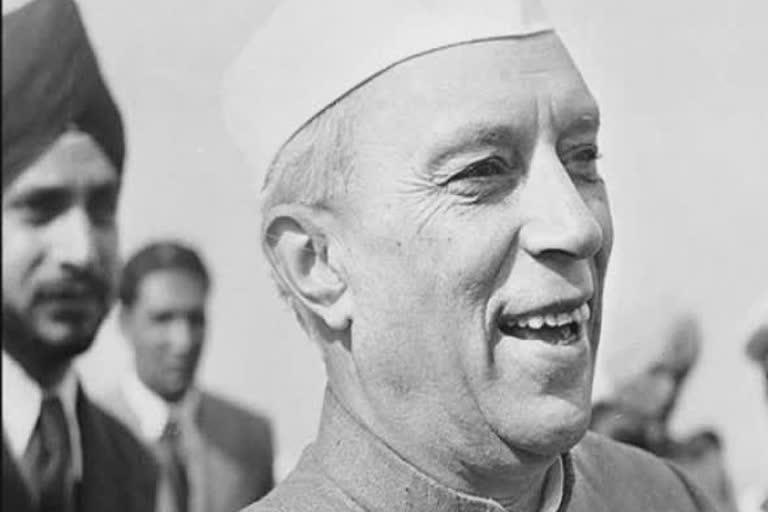Madurai (Tamil Nadu): Madura for the British became Madurai, and post-independent government records show that Nehru opted for this spelling to avoid any confusion with the famed North Indian Pilgrim Centre Mathura, in Uttar Pradesh.
The British spelt the name of the more than 2000-year-old city as Madura and the colonial era gazetteers too had that name. Later, it was also written as Mathurai. With a confusion persisting over the nomenclature with that of Mathura, the famed pilgrim centre in Uttar Pradesh, Nehru’s intervention was sought. In 1962, the then Municipal Council sent both 'MATHURAI' and 'MADURAI' for the Prime Minister’s perusal. Opting for the later, Nehru directed that ‘Madurai’ be used henceforth. From then on, the city, known as the cultural capital of the Tamils, is spelt as ‘Madurai’ as it was called from time immemorial. The Tamil Nadu government which had rechristened in English more than 1000 cities and towns to be in sync with the Tamil pronunciation, has also retained 'Madurai' which Panditji had opted for.
Earlier this week, the Tamil Nadu government issued a notification, changing the names of 1018 cities and towns so that spelling of these places are compatible with their Tamil pronunciation. The move has fueled a debate among political parties besides entering drawing-room discussions. The Government maintains that prior to the names were finalised, consultations were held with experts proficient in Tamil and the inputs of linguists too were taken into account. Though many places had their English spelling changed, the Sangam era temple city of Madurai in southern Tamil Nadu was among the few which had retained their old anglicised name. It is to its credit that the city not only continues to have the same name for over 2000 years but has stone inscriptions to back its historicity.
Also read: India will sort out 'misunderstanding' with Nepal, says Rajnath
On how the city derived its name, Madurai-based noted advocate Lajapathi Roy explains that it was because the region once had ‘Marutham’ trees in abundance it was called as 'Maruthai'. Even now, the city is referred to as 'Marutahi' in colloquial slang. There are also legends which narrate the city’s connect with Lord Shiva - Lord Sundareswarar, the presiding deity of the famed Meenakshi Amman Temple. According to mythology, the city was a celestial drop from Shiva’s head. However, there are inscriptions which attest to its name as far as the Sangam age (BCE 3rd century to CE 4th century).
Speaking to ETV Bharat, he drew attention to the cave inscriptions at Alagarkovil hillocks and Anaipatti Siddhar Malai.
There are inscriptions in and around Madurai such as those in the Jain caves of Mangulam hills which date back to the 3rd century BCE, containing the city’s name. Similarly, the inscriptions at the Alagar Kovil hillock, about 30 km from the present-day Madurai city, reads as follows: "mathirai pon kolvan athan athan," and "mathiraike uppu vanigan viyagan". Likewise, the one at Siddar Malai (hill) at Mettupatti near Vikiramasingapuram reads: "amanan mathirai athiran urai uthayanasa". According to Roy, these inscriptions offer enough proof that the ancient city had its name without undergoing any change for centuries together.
Coming to the present and contemporary history, it has now emerged that our first Prime Minister Jawaharlal Nehru had a significant and a close connect with the city with unique characteristics. According to former Madurai District Librarian Pandurangan, it was Nehru who put an end to the prevailing confusion over how the city was spelt in English.
"Confusion was persisting over the English spelling of the city’s name resulting in development projects going to Mathura, considered as the birthplace of Lord Krishna and as such the famed pilgrim centre in Uttar Pradesh. Concerned over this, the then Municipal Chairman TK Rama decided to find a solution to this problem. He held a consultation with experts, academicians and spiritual leaders. Then, he had the Council pass a resolution containing both 'Mathurai' and 'Madurai' which was forwarded to the Prime Minister for a decision," recalls Pandurangan.
"And, Prime Minister Nehru opted for 'Madurai' and directed that it be used in all official records henceforth. Interestingly, the Tamil Nadu government too has retained the same spelling while changing the names of 1018 towns and cities," he said with a sense of pride.
Confirming this, author and former Tamil teacher of CSI School at Pasumalai Devaraj, who had authored a book on the street names of the ancient city said that Nehru was instrumental in giving the current spelling. In his view, only now Nehru’s connect with Madurai’s nomenclature has come to light.
Also read: Two CISF personnel go missing in Pakistan: Sources



